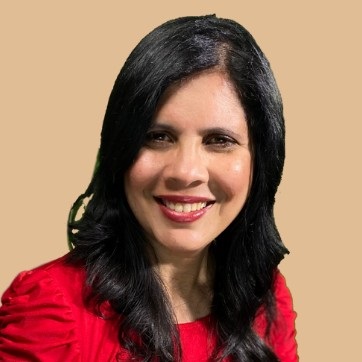As a Vietnamese boat refugee and youngest daughter to a single mother, Lucy overcame many hardships early on, becoming the first in her lineage to graduate from university. She eventually went on to have a fruitful career in finance and tech and is one of the youngest professionals to have been named to Silicon Valley Business Journal’s “Top 40 under 40” list. She is passionate about finding actionable ways to increase diversity in the investment and tech industries. Currently, Lucy is the Director of Partnerships at Rutberg & Co, a mobile-focused investment bank and sits on the board of Girls in Tech SF/SV.
1. TEW: Tell us a bit about yourself? Where are you from originally and why did you move to the US?
My mother is originally from Vietnam and had dreams of a better life for her children. In 1981, my mother, like many others, boarded an overcrowded fishing boat with me in utero and my two older siblings. After a couple failed attempts to flee the war-torn country which landed them in jail, my mother prayed each moment that we would not be discovered by government officials or pirates. The trip was rough. With people piled up on each other, they quickly ran out of water and food. Not too long after, we made it to Malaysia where were taken in and spent some time in a refugee camp before being transferred to another refugee camp in Bataan, Philippines where I was born. We were quickly sponsored by a family in Iowa and eventually made our way to San Jose, CA where there was a growing Vietnamese community.
2. TEW: You were the first one in your family to graduate from university. What were the hurdles you faced and what kept you motivated?
Understanding the sacrifices that my mother had to make in order to give us the opportunity to succeed always and still does keep me motivated and grounded. Imagine moving to a new country, not knowing the language and having only a fourth grade education, when reading in your own native tongue was already a challenge. Now imagine doing that with a newborn, a ten, and eleven year old.
We definitely had our hardships. We lived in poverty for many years, with no family, or other support system in the US. My mother waited tables and went to school at night. My younger brother was born 4 years after me but went to live with his father nearby. My siblings were out of the house by the time I was 6. I struggled for many years without guidance. I was in the advanced classes in elementary school but lost my way as an early teen. My mother had achieved her dream of having her own beauty salon but was often too busy managing the store. Not having much of an education herself, she lacked the understanding and resources to support me in my studies.
In the 10th grade, I had a history teacher who saw something in me and believed in me more than I did. I barely made it to class but would ace all the exams. He gave me a pep talk and I started to engage. Within a matter of months, I was transferred into all the college prep classes, joined clubs and volunteer groups, and even began to mentor other students. My high school counselor took me under his wing. He encouraged me to apply for scholarships and to be ambitious in my college applications. I was accepted to a few ivy leagues and UC’s with full scholarships. I opted for UC Berkeley and later transferred to Santa Clara University where I graduated with a Bachelors in Marketing from the Leavey School of Business.
I have a love for learning and always striving to be my best self. During my early years in finance, I had a series 6, 63, notary, and real estate license. More recently, I received training in counseling psychology to better equip me as a mentor and advisor.

Lucy Keoni volunteering abroad at an orphanage in Costa Rica
3. TEW: What is it like being a woman in the tech industry?
After college, I spent 5 years in finance as a marketer, in business development, and then as a private banker. In 2008, after some time off traveling, I wanted to get into the next big thing- mobile. I spent several years as Director of Operations for a mobile media company where there were only two females in the office. I oversaw engineering, project management, product management, and QA- all men. But anytime I went to an industry event, people would ask me if I was a promotional model, “booth babe”, or account manager. In fact, I still get that. They always seemed surprised that I was a director. It is incredibly frustrating and humorous at the same time.
After my time at the mobile company, I spent a couple of years advising and consulting for startups on leadership skills, organizational development and culture management. During that time, I started to really understand the glaring lack of diversity in tech and in the VC world. I started to get involved with various women in tech meet ups and learn as much as I could about the issue. Many of the companies that I advised and consulted for began to open up to the idea of diversity and inclusion programs. But there was always a lack of execution. It has only been in the last year or so that I have seen more and more companies take real steps towards change.
4. TEW: You have been named one of the “top 40 under 40” list in the Silicon Valley Business Journal. How did that feel?
What an incredibly humbling experience it was for me to be selected. It serves as a constant reminder that I can and will continue to make in impact in the world each day through the various social change initiatives that I am involved with.
That was years ago when I was a private banker. At that point I was mentoring quite a bit, designing financial literacy programs, and had helped organize the Girls Going Places Conference which encourages young women to take control of their financial future and careers.
Every day, I look around and I see myself, my mother, my sister, and my nieces in the females encounter each day. I do my best to be supportive and to be resource for them.
5. TEW: According to you, what is the future of women in technology? Why do you think it’s important to have women in the technology industry?
“The fastest way to change society is to mobilize the women of the world.”- Charles Malik
In 1843, Ada Lovelace published the first algorithm intended to be carried out by a machine. Nearly two centuries later we are still having to prove ourselves. And keep in mind, it has only been 95 years since women got the right to vote. We know all know the stats. Women earn less. There are less women in tech, fewer female entrepreneurs than there are males, and only 4% of US partner-level VCs are female.
There is a systemic problem and relegating it to a simple pipeline problem is not the answer. There is an unconscious and, in some parts of the world, very conscious gender bias. It starts with gender roles and how we parent, how we raise our children, who their friends are, what they are exposed to, who their role models are, what they choose to study in college, where and how we recruit, retention and culture design, and the list goes on. It is a complex issue that needs to be attacked from many angles, collectively.
And I remain positive and hopeful. Because of a series of events that have drawn media attention to the diversity issues in tech, we are seeing more organizations take action. AT CES this year, Intel announced their $300 million investment in training and recruiting female and other groups of under-represented computer scientists. Thank you Renée James! Intel will be leading an initiative to collaborate with other tech companies and partners to help build out the pipeline of women and minorities with tech-job skills.
This is a great start and it is a very exciting time to be part of the advancement of the tech industry. We know that organizations that actively include women benefit from increased innovation from the diverse perspectives we bring, have lower turnover rates, and have better bottom lines. By embracing this, the tech industry as a whole will be able to solve more of the world’s problems.

Lucy Keoni volunteering abroad at an orphanage in Cambodia
6. TEW: You are on the board of Girls in Tech SF/SV. How can we inspire young girls to enter the technology industry?
Take action. Be a role model. Be a resource. Be a mentor. Get involved. Here are some great opportunities:
http://www.girlswhocode.com/
http://www.blackgirlscode.com/
http://ladieslearningcode.com/program/girls-learning-code/
http://www.technovationchallenge.org/
http://firebrand-concepts.com/index_surefire.php
https://www.kickstarter.com/projects/1345510482/jewelbots-friendship-bracelets-that-teach-girls-to
7. TEW: What advice would you give to other expatriate women in the US that are looking to work in tech or start their own tech business?
I would highly encourage them to get connected and immerse themselves in the startup scene. Find a community like this or Girls in Tech SF/SV where our focus is networking, mentoring, and recruiting events and programs for our members. Check out the many resources that focus on supporting women founders in tech like Buildup (http://buildup.vc/about/), NewMe (http://www.newme.in/), and ChangeCatalyst (http://changecatalyst.co/).

Lucy Keoni volunteering abroad at an orphanage in Cambodia.
Written by Lucy Keoni & edited by Sandhya Jaishankar

